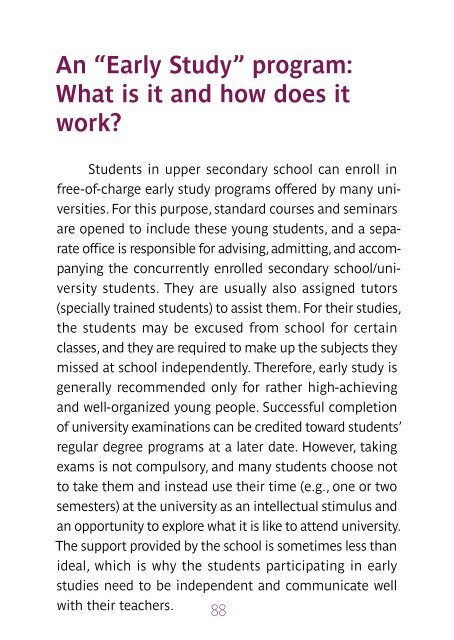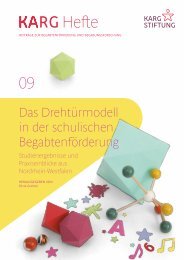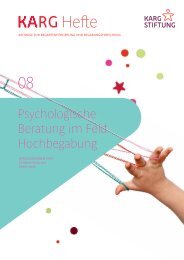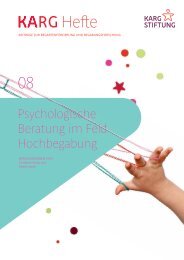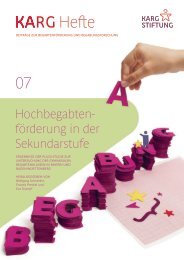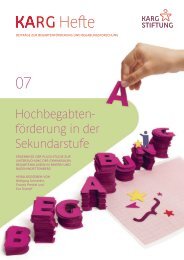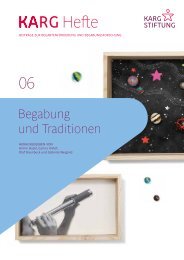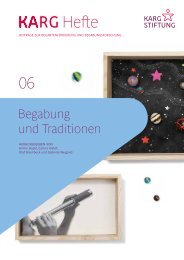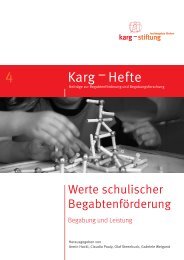FAQS: Frequently asked questions about giftedness
The Karg Foundation receives a lot of questions on the subject of giftedness—FAQs (Frequently Asked Questions)—far more often indeed than it did ten years ago. And this is a good thing! Many people involved in the educational processes of children have come to realize that giftedness can also be a fundamental personality trait of children and adolescents. The Karg Foundation wants to answer the questions you may have not only as educational and psychological professionals in educational institutions or working as educational providers, policy makers, or in training and further education institutes, but as parents and gifted people also: What is giftedness? How can it be identified? Who can provide advise for gifted children and their families? How can they be supported in the best possible way?
The Karg Foundation receives a lot of questions on the subject of giftedness—FAQs (Frequently Asked Questions)—far more often indeed than it did ten years ago. And this is a good thing! Many people involved in the educational processes of children have come to realize that giftedness can also be a fundamental personality trait of children and adolescents.
The Karg Foundation wants to answer the questions you may have not only as educational and psychological professionals in educational institutions or working as educational providers, policy makers, or in training and further education institutes, but as parents and gifted people also: What is giftedness? How can it be identified? Who can provide advise for gifted children and their families? How can they be supported in the best possible way?
Create successful ePaper yourself
Turn your PDF publications into a flip-book with our unique Google optimized e-Paper software.
An “Early Study” program:<br />
What is it and how does it<br />
work?<br />
Students in upper secondary school can enroll in<br />
free-of-charge early study programs offered by many universities.<br />
For this purpose, standard courses and seminars<br />
are opened to include these young students, and a separate<br />
office is responsible for advising, admitting, and accompanying<br />
the concurrently enrolled secondary school/university<br />
students. They are usually also assigned tutors<br />
(specially trained students) to assist them. For their studies,<br />
the students may be excused from school for certain<br />
classes, and they are required to make up the subjects they<br />
missed at school independently. Therefore, early study is<br />
generally recommended only for rather high-achieving<br />
and well-organized young people. Successful completion<br />
of university examinations can be credited toward students’<br />
regular degree programs at a later date. However, taking<br />
exams is not compulsory, and many students choose not<br />
to take them and instead use their time (e.g., one or two<br />
semesters) at the university as an intellectual stimulus and<br />
an opportunity to explore what it is like to attend university.<br />
The support provided by the school is sometimes less than<br />
ideal, which is why the students participating in early<br />
studies need to be independent and communicate well<br />
with their teachers.<br />
“Early studies are generally<br />
recommended<br />
only for high-achieving<br />
and well-organized<br />
young people.”<br />
88 Supporting 89


